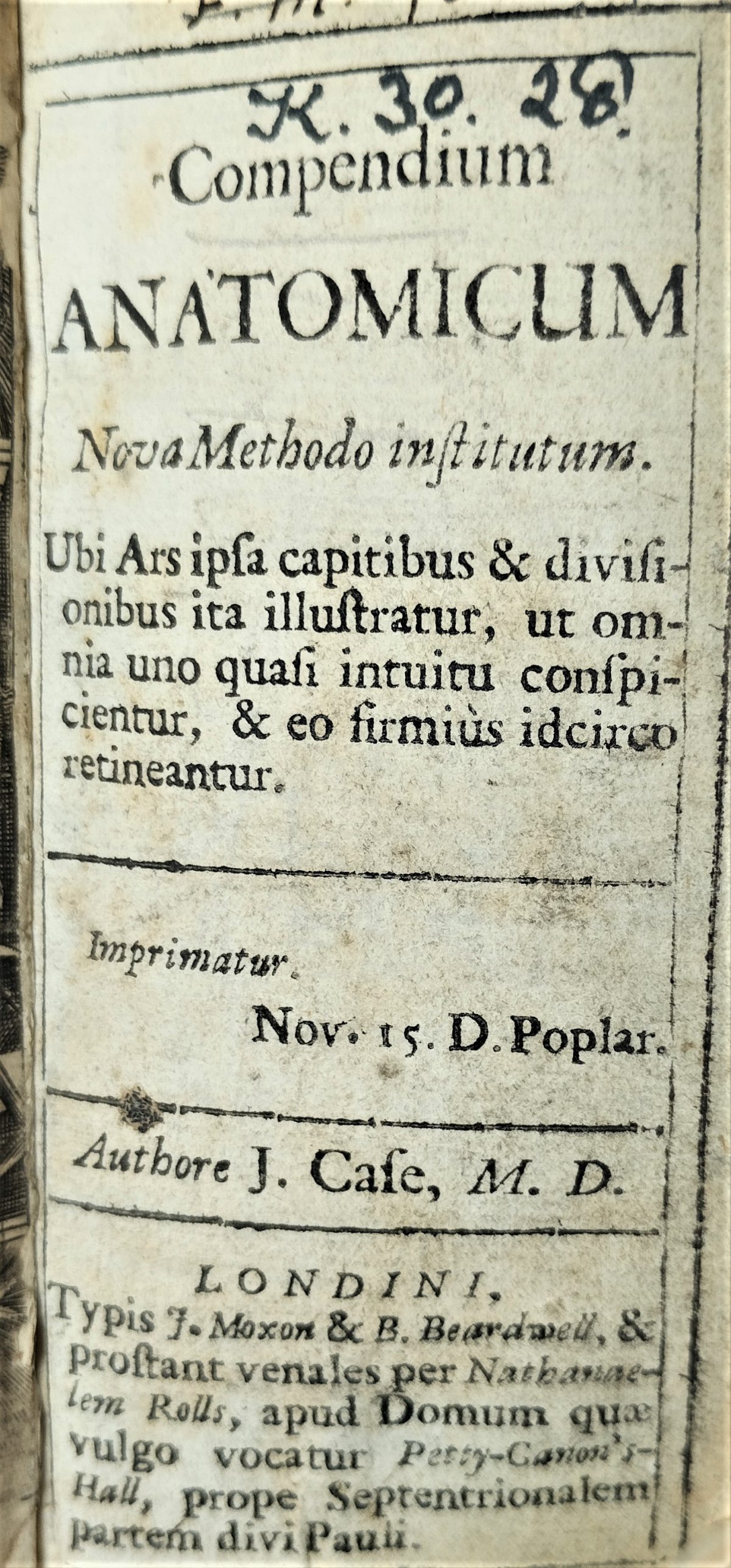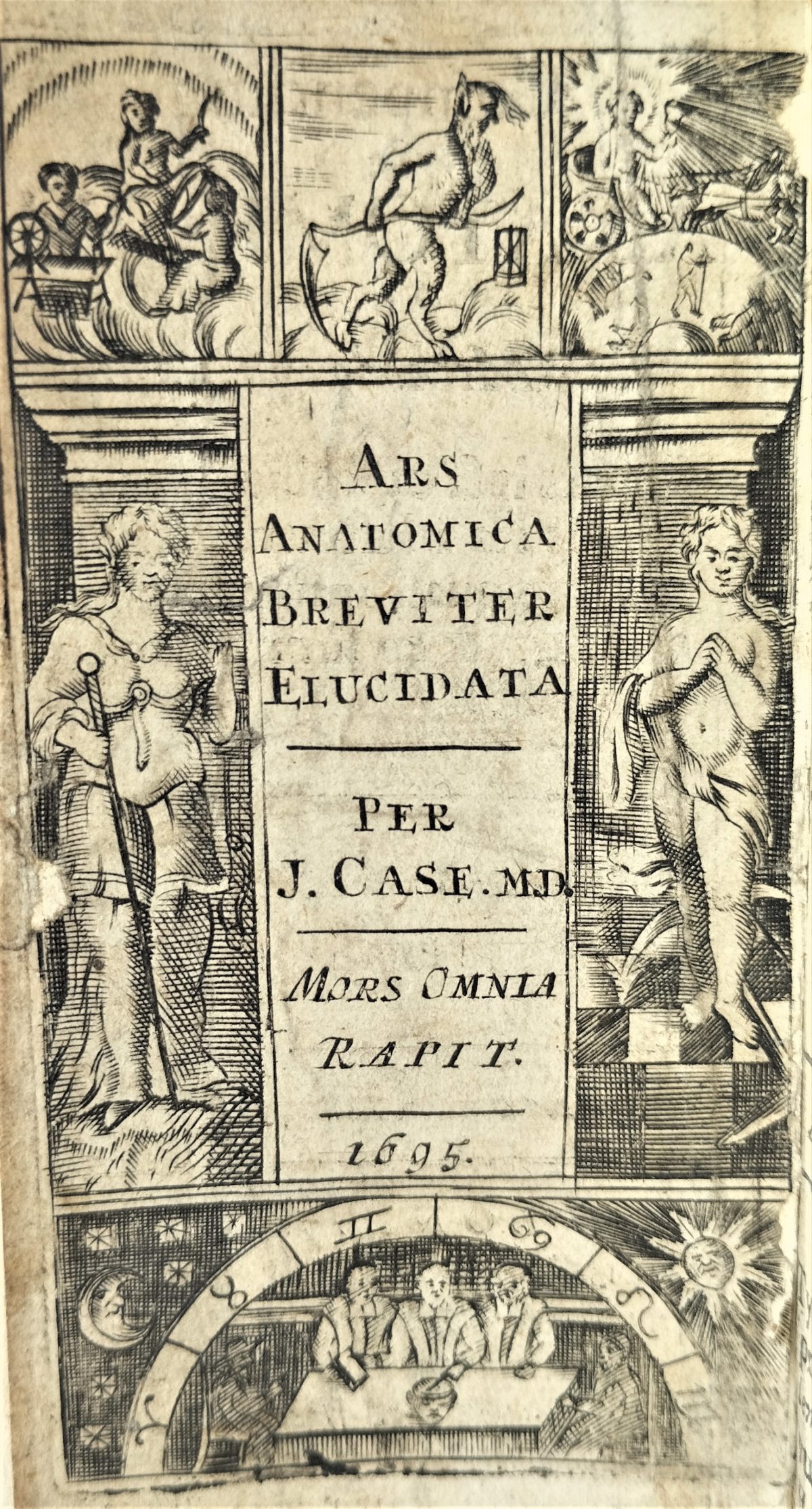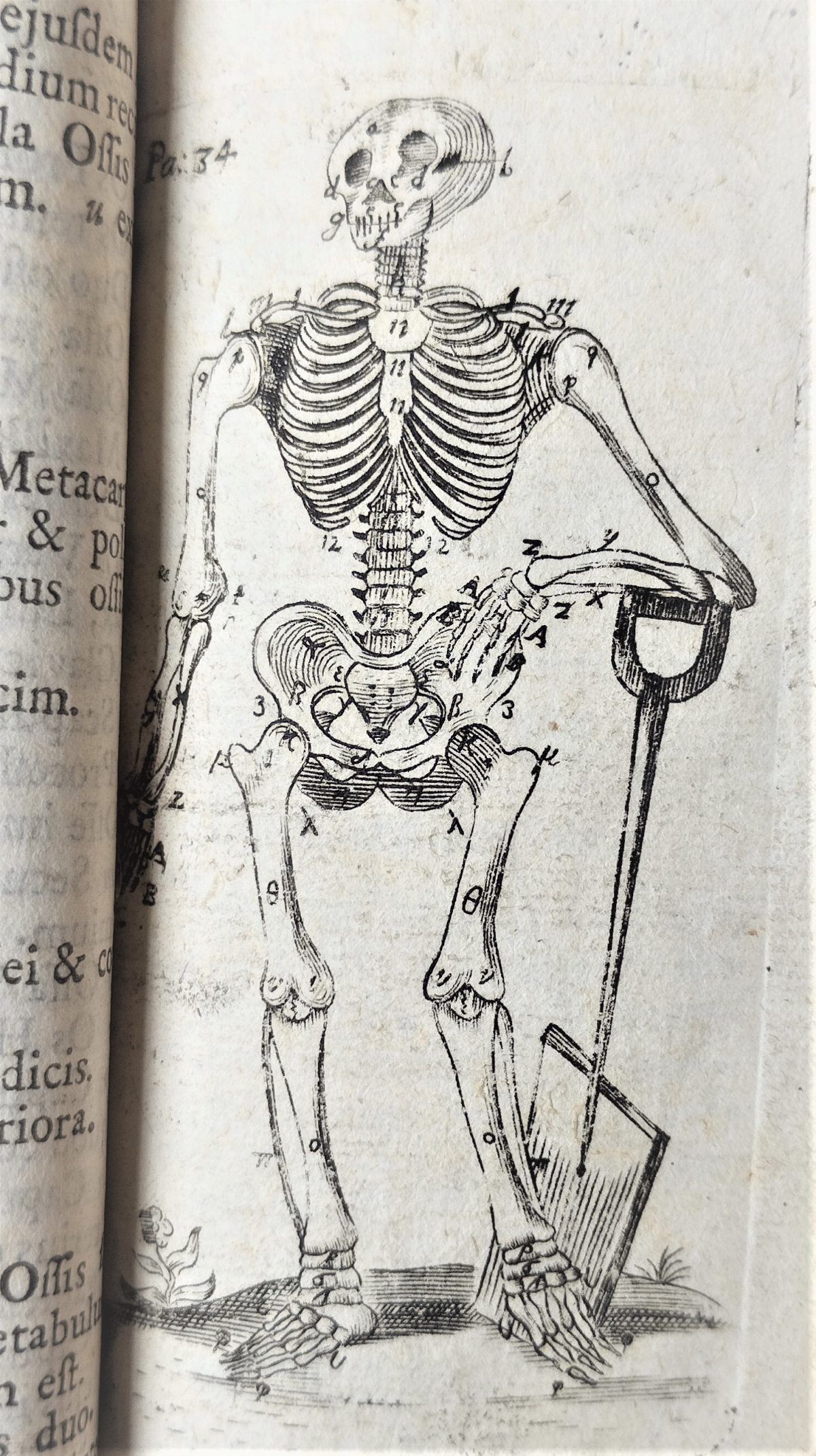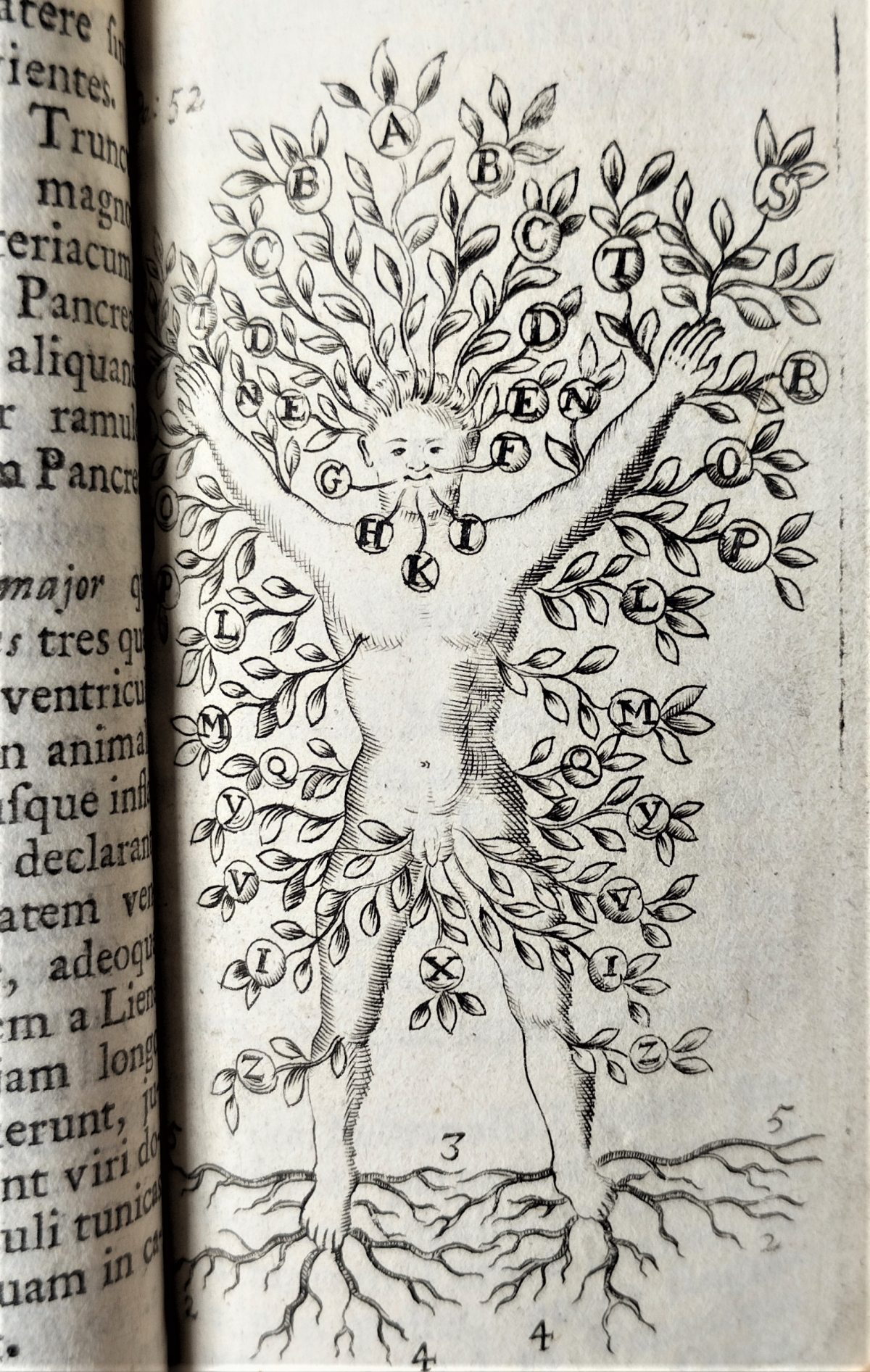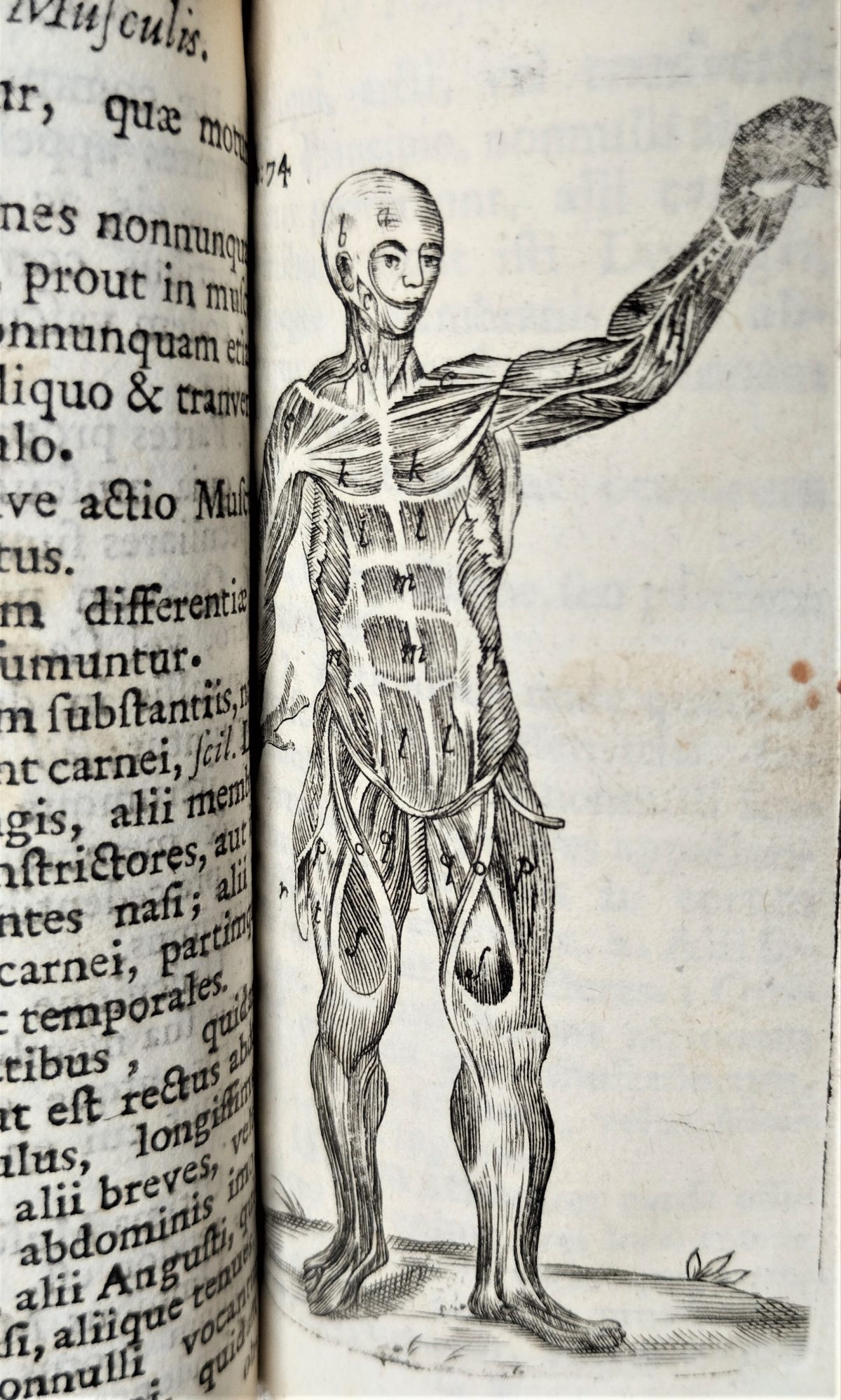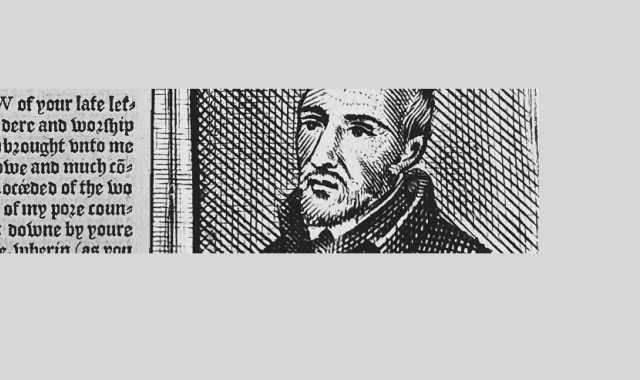John Case, quack doctor
Compendium anatomicum (Anatomical summary), by John Case. Printed in London by J. Moxon and B. Beardwell, 1695. Lower Library, K.30.28
John Case (c. 1660–1700) was an English astrologer and quack doctor.
Although there is no evidence that Case ever acquired a medical qualification, he nonetheless took up the title of Doctor and set up a practice in Ludgate selling medications to the unsuspecting, unquestioning public. The term quack in the Middle Ages meant “shouting”, as these charlatans used to sell their wares at markets by shouting to gain attention. Case advertised profusely his remedies over decades and the elevated price of his elixirs and remedies hints at a steady and affluent clientele, many of whom were seeking a cure for the clap.1
Despite predicting the end of the world, owning an illusionist apparatus to scare people with images of their departed friends and selling unproven medicines, he rose briefly to fame thanks to his Compendium Anatomicum. In here Case defended the opinion of William Harvey’s 1651 De Generatione Animalium (On the generation of animals), where the renowned physician and scientist established several theories that would set the stage for modern embryology and addressed many embryological issues including conception, embryogenesis, and spontaneous generation.2
Case’s work was so superior to his other books that some doubted his authorship.
Against the quacks << John Case, quack doctor >> A new idea in circulation
- Edward Heron-Allen and Anita McConnell, ‘Case, John (c. 1660–1700), Astrologer and Quack’, Oxford Dictionary of National Biography, 23 September 2004.
- Angel Lopez, ‘William Harvey (1578–1657)’, Embryo Project Encyclopedia (2010).


